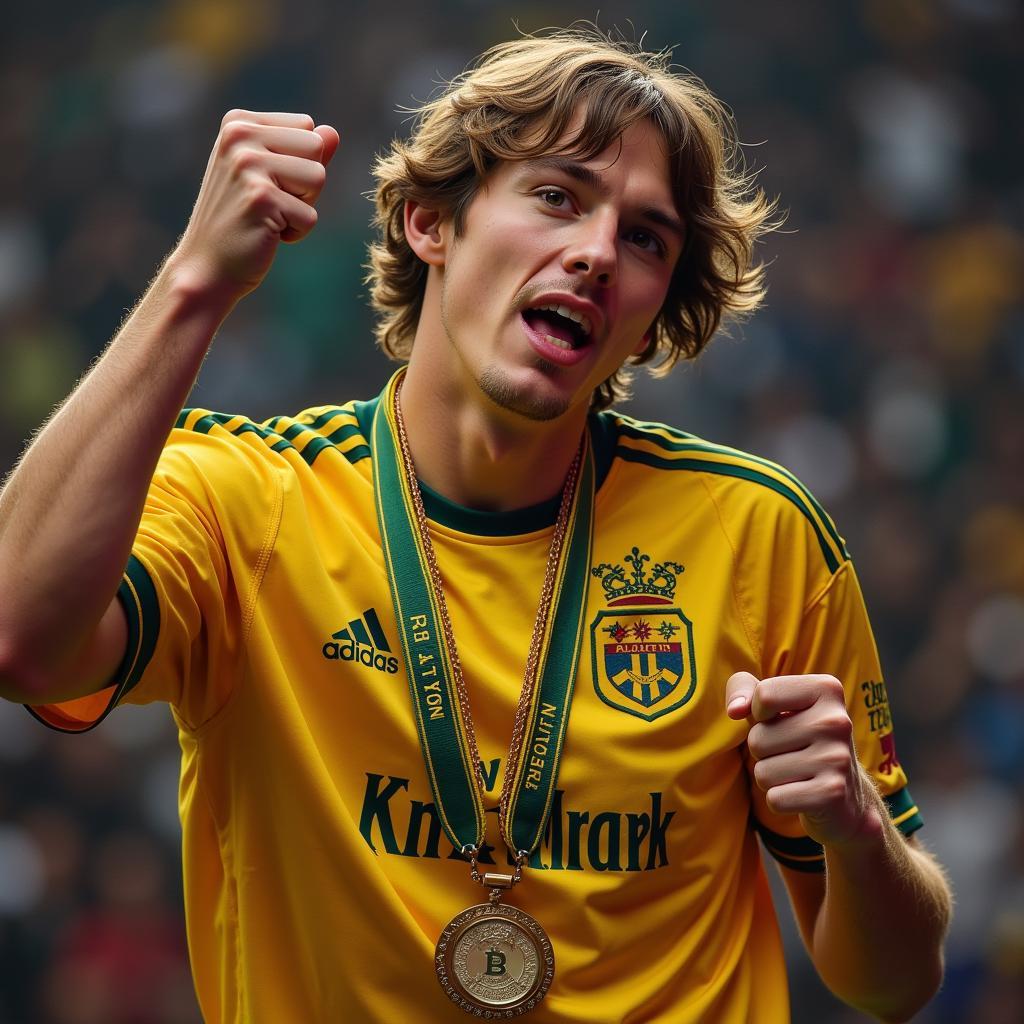The phrase “Dendi anti-fan sportsmanship” might seem paradoxical at first. After all, how can someone be an “anti-fan” and still exhibit sportsmanship? In the passionate world of Dota 2, especially concerning legendary player Danil “Dendi” Ishutin, this phenomenon becomes surprisingly understandable. Let’s delve into this unique aspect of the Dota 2 community.
The Legend of Dendi and the Rise of “Anti-Fans”
 Dendi in Na'Vi Jersey holding Aegis
Dendi in Na'Vi Jersey holding Aegis
Dendi’s legacy in Dota 2 is undeniable. As a pivotal member of Natus Vincere (Na’Vi) during their golden age, he achieved global recognition for his exceptional mid-lane prowess and charismatic personality. His plays, particularly with the hero Pudge, became iconic, inspiring a generation of aspiring players.
However, as with any esport athlete, Dendi faced a career decline. Na’Vi’s dominance waned, and despite Dendi’s individual skill, the team struggled to recapture their former glory. This period saw the emergence of “Dendi anti-fans.”
These were not individuals who hated Dendi personally. Many still acknowledged his past achievements and respected him as a player. Their frustration stemmed from what they perceived as a decline in his performance and a reluctance to transition into a different role or team where his experience could be more beneficial.
The “Tough Love” of Dendi Anti-Fans
The criticism from Dendi anti-fans often manifested as harsh comments during his streams or on forums. Some argued he was holding Na’Vi back, while others questioned his decision-making in competitive matches. This seemingly negative sentiment, however, often stemmed from a place of “tough love.”
These fans believed in Dendi’s potential and felt frustrated seeing him struggle. Their criticisms, though blunt, aimed to light a fire under him, pushing him to either regain his peak form or consider alternative paths within the Dota 2 scene.
Sportsmanship Despite Disagreement: A Mark of the Dota 2 Community
What makes “Dendi anti-fan sportsmanship” intriguing is that it never truly crossed the line into toxicity. While criticism existed, it rarely devolved into personal attacks or harassment. The Dota 2 community, known for its passionate fanbase, seemed to understand the distinction.
They could disagree with Dendi’s choices or perceive a decline in his gameplay without resorting to hateful behavior. This speaks volumes about the underlying respect for Dendi as a figurehead of the game and a testament to the community’s capacity for sportsmanship even when expressing dissent.
Conclusion: Dendi’s Legacy and the Evolution of Fandom
Dendi’s journey, from revered champion to facing the “anti-fan” phenomenon, offers a compelling glimpse into the complexities of esports fandom. It highlights the fine line between constructive criticism and outright negativity, while showcasing the Dota 2 community’s ability to walk that line with a degree of sportsmanship. Dendi’s legacy, therefore, extends beyond his in-game achievements; it serves as a case study in the evolving dynamics between esports athletes and their devoted, albeit sometimes critical, fanbase.


